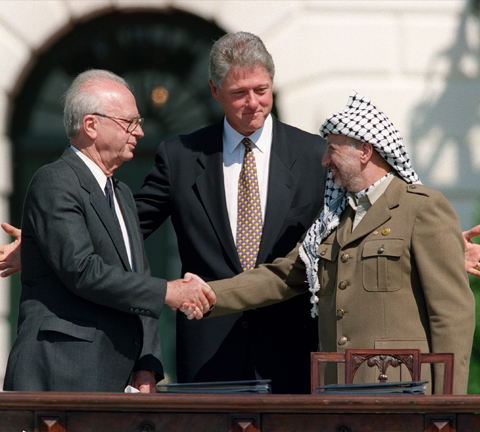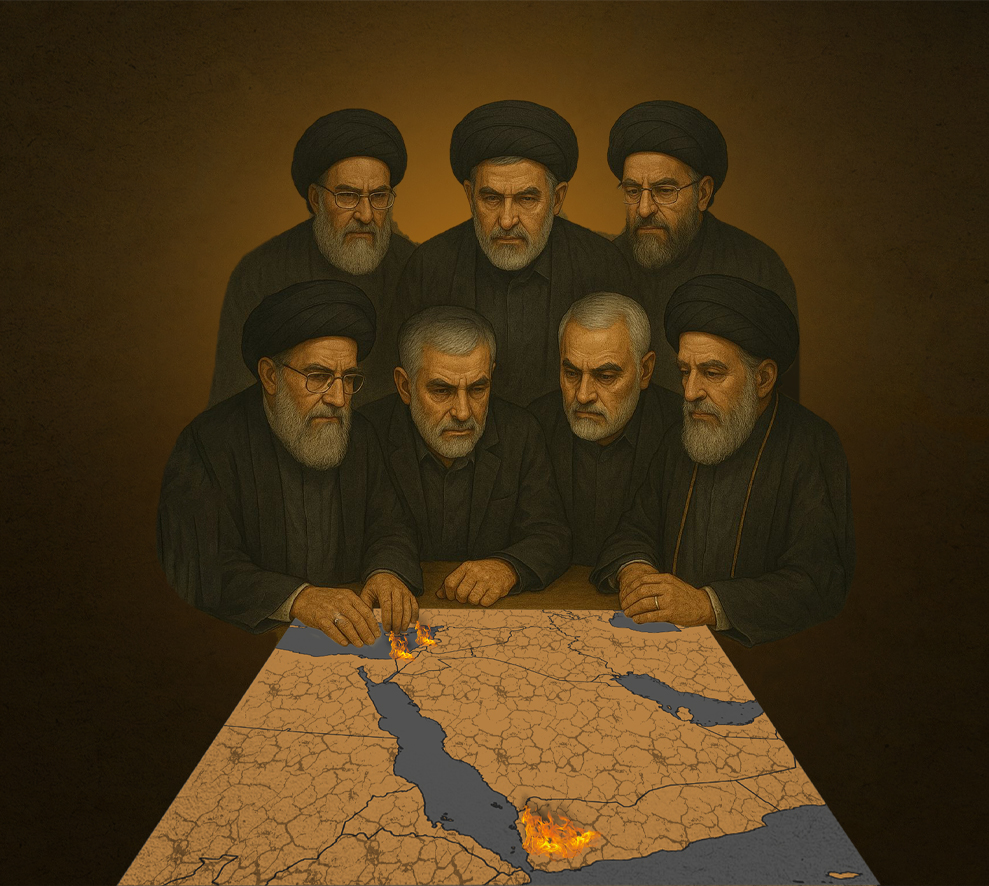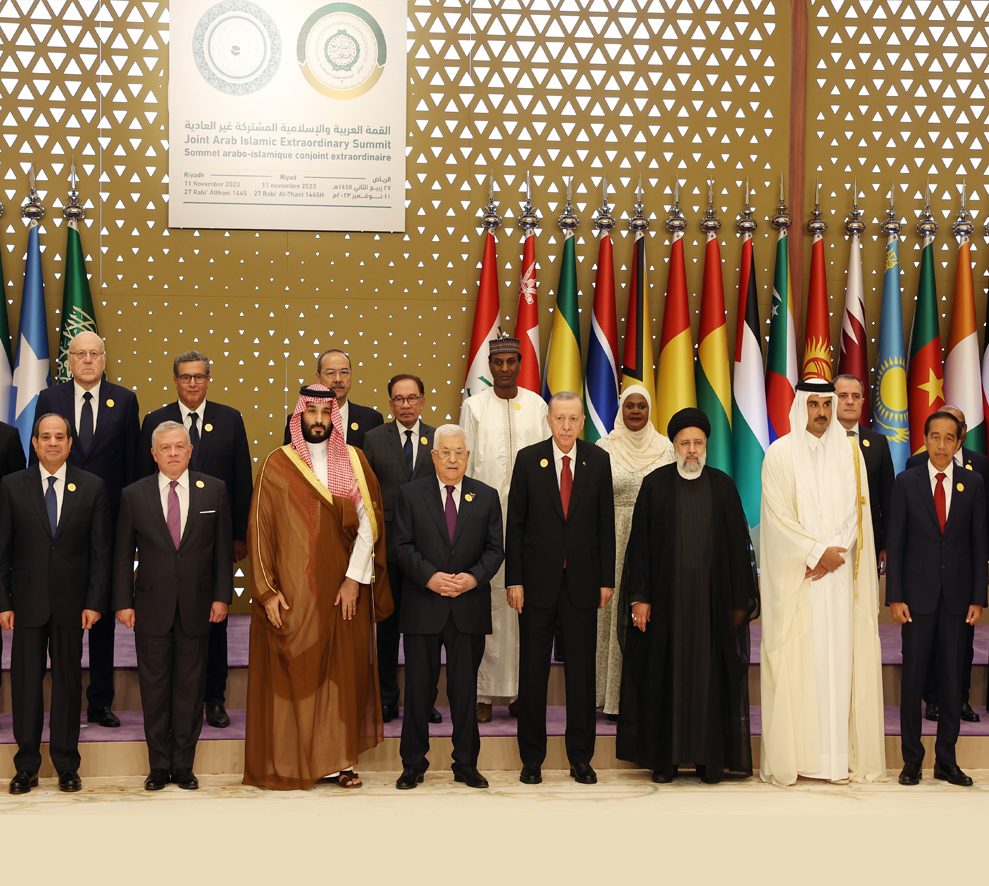Under the title “Oslo,” a new drama film has been aired on HBO recently. The film goes behind the scenes of the 1993 Oslo Peace Accords, a landmark moment that marked the first face-to-face agreement between the government of Israel and the Palestine Liberation Organization (PLO) and an unprecedented move toward peace. The film tells the story of the extraordinary efforts of Norwegian diplomat Mona Juul and her husband, Terje Rød-Larsen, sociologist and director of the Fafo Research Foundation, along with the secret meetings they arranged in Oslo between the warring parties as an alternative to the stalled US-led negotiations.
The screening comes just days after the cease-fire following a major escalation in the Palestinian territories and heavy military campaigns that claimed the lives of some 248 Palestinians, including 66 children, as a result of the massive Israeli attack on Gaza. On the other side, at least 12 Israelis were killed by “Hamas” rocket fire.
Seeing that, I find myself often wondering: What if peace had really been achieved since Oslo? Would we have been experiencing such wars? No matter how pessimistic the scenarios I try to imagine for the course of events under such assumption are, finding a scenario in which the situation for Palestinians could be worse than the present conditions would always be unlikely.
This is not to deny, of course, that Oslo Accords and the “peace process” that preceded or followed them have many disadvantages and injustices to the Palestinians in several parts. However, I tend to take Oslo because it is the clearest “landmark” in the history of the conflict and also because any peace process, no matter how successful it is, would somewhat be unjust to the Palestinians, for it would rather be a fait accompli peace, not a peace of zero threat. Therefore, it is better to balance the gains and losses, so that one can see that the advantages of peace will always outweigh disadvantages by a wide margin.
Although the Oslo Accords gave no decisive solutions to a number of crucial questions like the borders of Israel and Palestine, the status of Jerusalem, the Palestinian right to return, Israeli settlements, and security; yet, they included many substantial terms with the potential to build on, such as mutual recognition in 1993 between Israel and PLO and the signing at the Lawn of the White House, the Gaza-Jericho Agreement 1994, the Casablanca Summit 1994, where Israeli and Arab private sector representatives from across the Middle East met to discuss business, and the 1994 Israel-Jordan Peace Treaty. Perhaps these concessions made by Palestinian could have been the last.
Speaking realistically, the success of the Oslo Accords may not actually have led Palestinians, and Arabs, to the top of the peak of peace with Israel, but it would certainly have prevented the current decline into the valley of conflict, besides that it would also prevent extreme polarization, deepening tendencies and the rise of anti-peace forces pushing Palestinians and Israelis further towards the far right. Most importantly, true peace would necessarily have ensured a better future for the Palestinian State.
Palestinians and Israelis would have saved economic losses of billions of dollars as a result of joint economic projects between private sectors in the fields of energy, cement, electricity and telecommunications, had the Oslo Accords been a success.
For Palestinians, in particular, the reconstruction of the Palestinian territories was to be carried out by internationally renowned Palestinian economists and businessmen, working side by side with the World Bank and enjoying financial support from contributions from the West. To this end, in late 1993, potential donor countries met and committed to providing large sums of money, and the Palestinian Economic Council for Development and Reconstruction (PECDAR), which was supposed to oversee the PA economy, was established.
However, against that of the international community, Yasser Arafat's calculations were wide of the mark; for he regarded the existence of an independent and influential organization like PECDAR as a potential threat to his authority!
The World Bank was seeking to drive the Palestinians towards building a modern Western-style economy, with all its competitive markets, transparent and accountable public bodies, powerful financial and legal institutions that are also capable of curbing corruption, favoritism and mismanagement still characteristic of the economic performance of successive Palestinian leaderships.
Since its establishment, the PA's economy has been managed as if it were a family enterprise, monopolies are conceded to individuals or institutions only in exchange for something, and public funds are often used unconditionally as if they were personal wealth. The impact of this corruption is made worse when donor funds are not invested in infrastructure and means of production to support development and build local economic capacity rather than the continued reliance on voluntary contributions, whose cessation at any moment would threaten with the collapse of the entire system.
The opportunities lost as a result of non-compliance with the Oslo Accords are not limited to the economy, although I believe it is the most important aspect; since the development of economic conditions of the Palestinians and ensuring decent livelihoods for them would definitely result in new equations. Nevertheless, even on the security front, if the Oslo Accords had succeeded, there would be a possibility to keep “joint patrols” which were supposed to include both Israeli and Palestinian soldiers to prevent violence and fight extremist terrorism, thus stopping possible assassinations and numerous escalations that claimed the lives of thousands, destroyed many structures, houses and installations, and directly led to halting the peace process.
Once the Oslo process failed, suspicion and mistrust among both Israelis and Palestinians, that they attribute to each other's motives, followed— numerous incidents led to questions among Israelis as to whether Arafat and the PLO really intended to lay down arms; Palestinians also felt that the expansion of settlements and Israel’s establishment of military roadblocks between Palestinian cities were aimed at creating separate Palestinian cantons that stifled the potential for a viable future Palestinian State. All of which had created an atmosphere of crises and low expectations.
In the opposite situation, had Oslo agreements been successful, they would certainly have been the dawning for many other agreements. For example, the agreement with Syria had been the next goal of Yitzhak Rabin - according to many analysts - as it is an agreement that could have changed the face of the entire region; Syria might have avoided the bloodbath it has been going through for more than a decade, Iran's blatant interventions in the region might have been halted, and maps of influence and balance of power all over the Middle East might have been changed. By and large, the success of the 1993 agreement, however small and relative, would have had a significant positive impact on all the supporting and peace-seeking parties and would have inspired further efforts, thus saving endeavors from being hunted by the specter of “Oslo failure”.
The agreement may not have been the magic wand that would bring about a quantum leap, tip the scales and create a just and comprehensive peace in the region. However, it would definitely have been an important cornerstone and an opportunity that could open the door to wider prospects. No matter how bad the conditions of the commitment to the agreement would be, being worse than the situations of the Palestinians in particular, and the region in general, would be quite questionable.
The new HBO film ends with the famous handshake between PLO Chairman Yasser Arafat and Israeli Prime Minister Yitzhak Rabin before US President Bel Clinton at the White House lawn, as though the scene speaks for itself: “Look, there could be peace!”
On the flip side, every so often a thinker, analyst or even a politician appears to say that a certain event - that depends on time, context, and political leaders - has been the final nail in the coffin of the Israeli-Palestinian peace process. Many "nails" were regarded as “final” and yet the hope of resurrecting the peace process is still there. Perhaps we have wasted a quarter of a century, but our responsibility to future generations requires that we waste no more time and work hard enough to live a safe and well-off life in the future.
Keep in touch
In-depth analyses delivered weekly.

Related Analyses:












